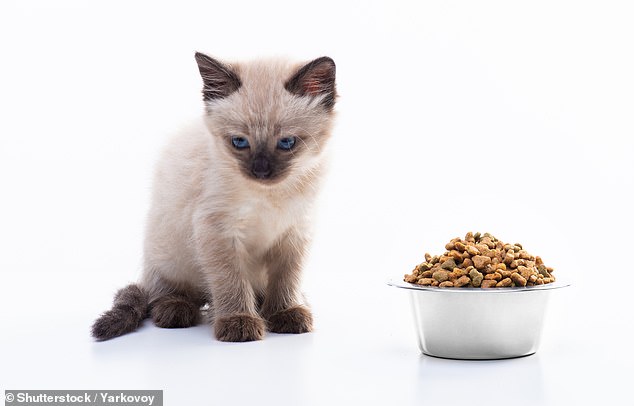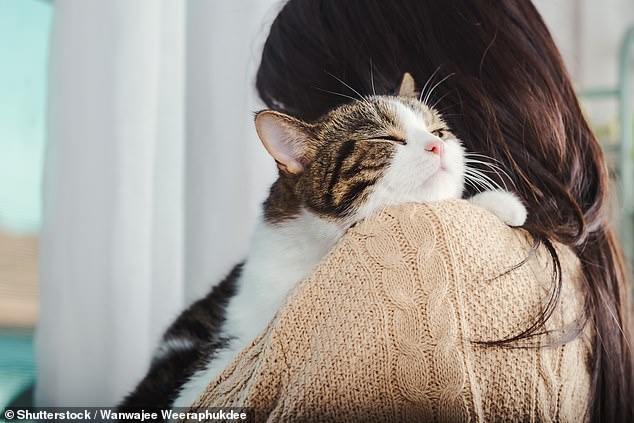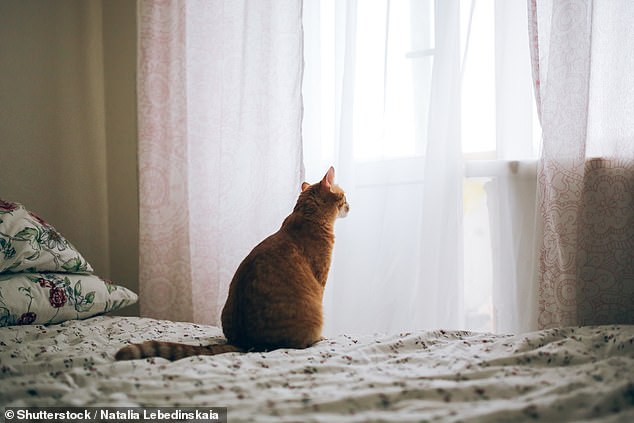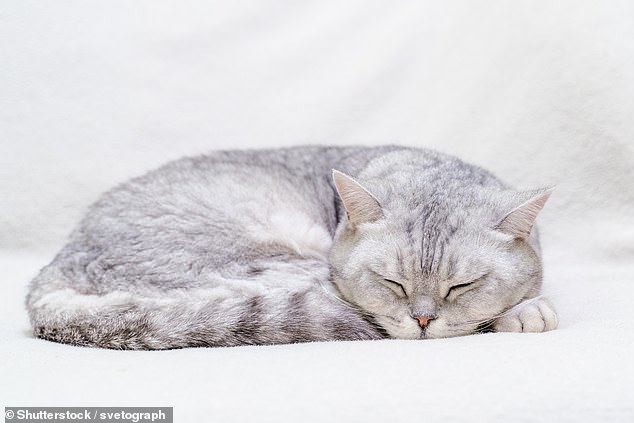The death of a pet is devastating for any owner, but if you have multiple animals, a new study suggests the loss is just as hard on them.
Oakland University researchers have revealed that cats show key signs of grief after the death of another pet in the same household.
This includes changes in sleep, seeking attention, and spending time alone.
And it’s not just cats that cry like humans.
The new study’s findings come shortly after research revealed that dogs display grief-like behaviors after losing a companion.
The death of a pet is devastating for any owner, but if you have multiple animals, a new study suggests the loss is just as hard on them (file image)

Researchers at Oakland University have revealed that cats show key signs of grief after the death of another pet in the same household. This includes changes in diet (file image)
In 2022, researchers at the University of Milan revealed that dogs show key signs of awakening after losing a companion.
However, until now it was unclear whether the same applied to cats.
“While dogs, descendants of pack animals, might reasonably respond more strongly to the death of a conspecific, cats in human care have adapted to living among conspecifics and their ability to respond to the loss of a companion warrants further study,” the team wrote in their study, published in Applied Animal Behaviour Science.
In the new study, researchers recruited 412 cat owners, who were asked about immediate and long-term changes observed in a surviving cat following the death of another pet.
The results revealed that some cats showed key indicators of grief, including changes in sleep, eating, playing and seeking attention, hide and spend time alone.
However, the team found that these behaviors varied depending on the cat’s relationship to the deceased animal.

Some cats showed key indicators of grief, including changes in sleeping, eating, playing, seeking attention (stock image), hiding, and spending time alone.

The team found that grieving behaviors varied depending on the cat’s relationship to the deceased animal (file image)
“The longer the cat had lived with the deceased animal, the more caregivers reported an increase in care seeking after death,” the researchers explained in the study.
What’s more, the owner’s own relationship with the deceased cat also affected the surviving pet’s response.
“This suggests that our feline friends may be reflecting the pain of their caregivers,” the researchers added.
The team hopes the findings will help challenge the stereotype that cats are aloof and asocial.
Brittany Greene, lead author of the study, said: ‘Our study reveals that domestic cats exhibit behavioural changes that mirror their canine counterparts.
‘The psychological experience of loss is universal across the animal kingdom and the bonds forged with our pets are a mirror of the care and connection we provide.’


